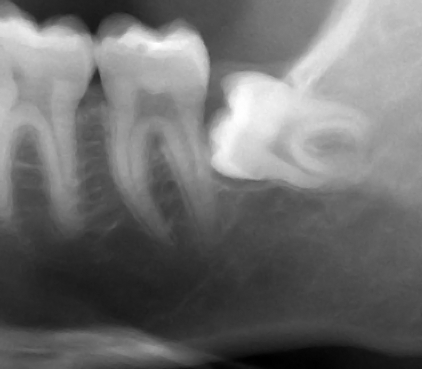If you’ve kept up on your dental visits growing up or through adulthood, you’ve surely had X-rays taken of your teeth. A routine procedure for many, this examination of the dental area can help your dentist get a clearer picture of hard to see problems or even discover hidden issues that may be occurring out of visual sight.
 X-rays, or dental radiographs in dentist’s terms, are an incredibly useful tool in your dentist’s kit. They can be used to help identify impacted teeth, emerging molars or wisdom teeth or other potential concerns below the gum line, like abscesses, cysts or even cancerous growths. They can also give a dentist a look at potential problems with teeth formation in children and young adults, allowing doctors to develop a preventative treatment option or plan of action to ensure proper dental development.
X-rays, or dental radiographs in dentist’s terms, are an incredibly useful tool in your dentist’s kit. They can be used to help identify impacted teeth, emerging molars or wisdom teeth or other potential concerns below the gum line, like abscesses, cysts or even cancerous growths. They can also give a dentist a look at potential problems with teeth formation in children and young adults, allowing doctors to develop a preventative treatment option or plan of action to ensure proper dental development.
The X-rays used in dental settings are no more harmful than the natural radiation each of us receives everyday. Even so, every precaution is taken – including lead aprons and modern, fast-exposure film – to minimize the amount of radiation used. Plus, the latest available technology, digital X-rays, reduces these already low radiation levels to 80 to 90 percent of conventional technology. In addition, these digital X-rays are stored electronically, allowing dentists to more rapidly view the scans and even zoom in for a closer look than was possible with existing X-ray technology.
Typically new patients should have a full-mouth series of X-rays taken at their first appointment and again every three to five years to provide a complete comparison of how teeth have progresses to look for any new developments, signs of change or abnormalities. Additionally, bite-wing X-rays should be taken at least annually to provide an ongoing check of your dental health. Despite what you may have thought, X-rays are a nearly harmless and noninvasive way dentists can paint a more complete picture of your overall dental health.
Find out more about X-rays and how they’re used to at your next dental checkup or cleaning session. We’re also accepting new patients, and the best time to see your dentist is before a problem occurs – not after! Call us today at 585-343-1113 or request an appointment online now!
